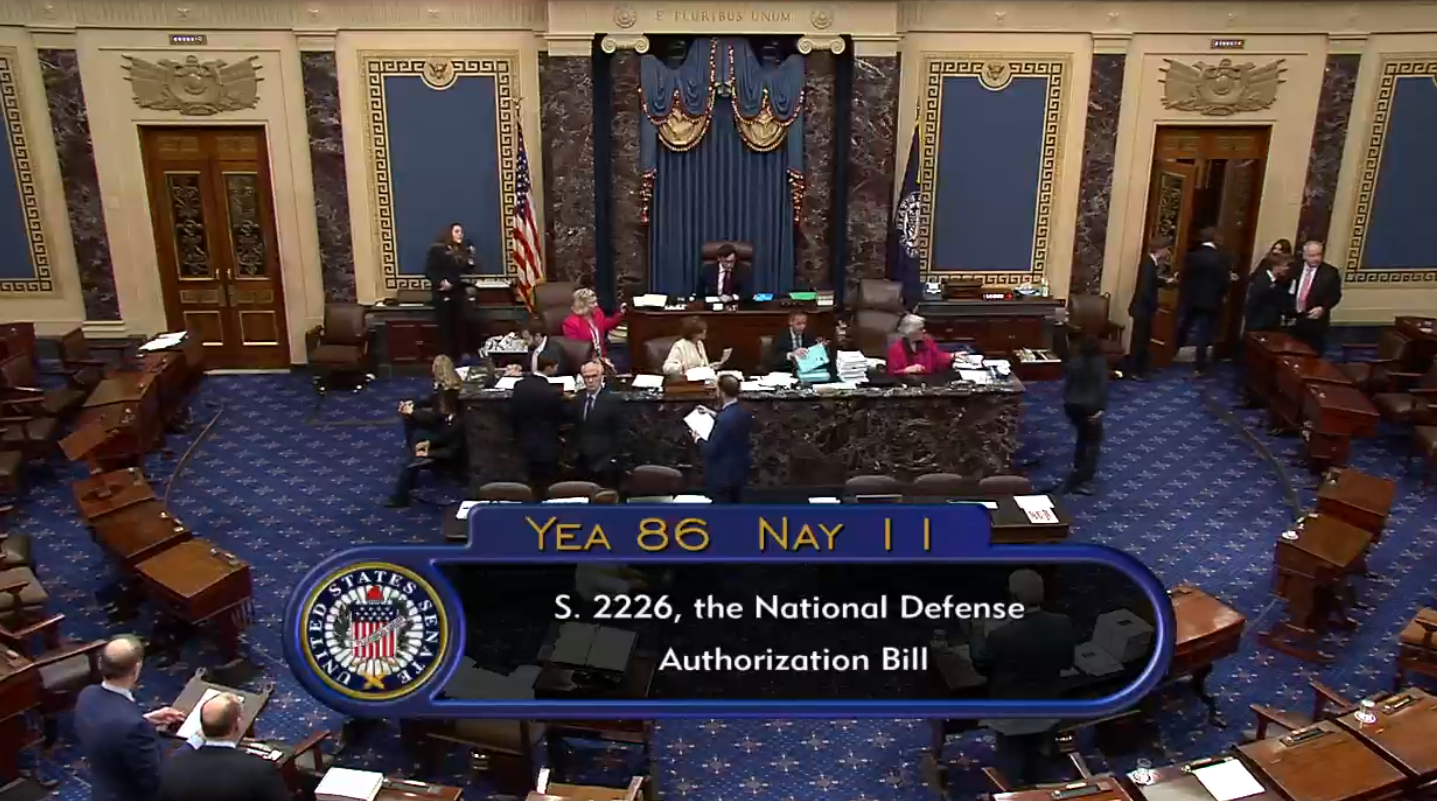
RadWaste Monitor Vol. 16 No. 30
Visit Archives | Return to Issue PDF
Visit Archives | Return to Issue PDF
RadWaste & Materials Monitor
Article 1 of 7
July 27, 2023
Senate NDAA passes, has nuclear policy reform, uranium purchase requirement

The Senate on Thursday passed its version of the 2024 National Defense Authorization Act, which this year is loaded with policy reforms for federal nuclear-energy programs.
The annual military policy bill passed 86-11. It already contained the full text of Sen.…